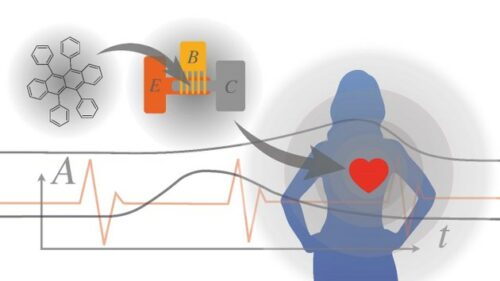The processing of data has been greatly enhanced by the rising performance brought on by the scaling of silicon circuits in the nanoscale range. However, for new sorts of flexible electronic components like rollable TV displays, or for medical applications on or even inside the body, the current technology is less suited.

Transistors composed of organic, or semiconductors based on carbon, have gained attention recently for flexible applications. Although organic field effect transistors have been around since 1986, silicon components still outperform them in terms of performance.
The first extremely effective organic bipolar transistor has been demonstrated by Prof. Karl Leo’s research team at the Institute for Applied Physics at the Technical University of Dresden. This offers organic electronics completely new opportunities in data processing and transmission as well as medical technology applications. Dr Shu-Jen Wang, who co-led the project with Dr. Michael Sawatzki, explains, “The first realization of the organic bipolar transistor was a great challenge, since we had to create layers of very high quality and new structures. However, the excellent parameters of the component reward these efforts!”
The utilisation of highly organised thin organic layers was essential for this research. The working frequencies of the components have finally reached the gigahertz range, or more than a billion switching operations per second, making this new technology several times quicker than earlier organic transistors. Future applications such as intelligent patches with built-in sensors that process the data locally and wirelessly connect with the outside are envisaged.
Prof. Karl Leo adds, “We have been thinking about this device for 20 years and I am thrilled that we have now been able to demonstrate it with the novel highly ordered layers. The organic bipolar transistor and its potential open up completely new perspectives for organic electronics, since they also make demanding tasks in data processing and transmission possible.”
Click here to access their study.








